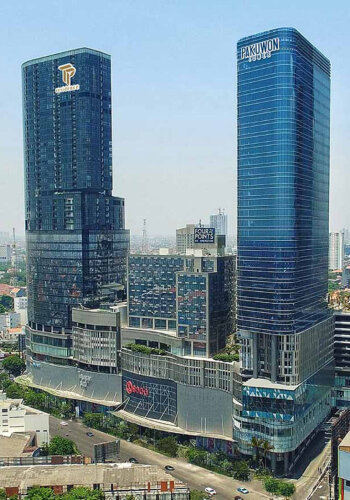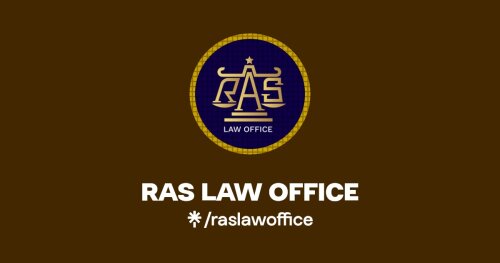Best Debt Capital Markets Lawyers in Surabaya
Share your needs with us, get contacted by law firms.
Free. Takes 2 min.
List of the best lawyers in Surabaya, Indonesia
About Debt Capital Markets Law in Surabaya, Indonesia
Debt Capital Markets (DCM) involve the issuance and trading of debt securities, such as bonds and notes, to raise capital for governments, corporations, and institutions. In Surabaya, Indonesia's second largest city and a major economic hub, the DCM sector has grown significantly alongside the country's financial and infrastructure development. As part of the Indonesian capital market system, activities in Surabaya are regulated under national law, but local implementation and compliance matters often require specialized legal understanding due to city-specific investment trends and business practices.
Typical DCM transactions in Surabaya include corporate bond issuances, municipal bonds, sukuk (Islamic bonds), and structured debt instruments. These transactions frequently involve multiple parties, including issuers, underwriters, investors, trustees, and regulators, making the legal landscape complex. Navigating these complexities calls for a solid understanding of both Indonesian and Surabaya-specific legal requirements.
Why You May Need a Lawyer
Engaging in Debt Capital Markets transactions often requires legal support to ensure compliance and to manage risk. Here are some common situations where legal assistance can be crucial:
- Structuring and executing bond issuances, both conventional and sharia-compliant
- Drafting and reviewing documentation for debt offerings
- Adhering to regulatory requirements set by the Financial Services Authority of Indonesia (OJK) and Indonesia Stock Exchange (IDX)
- Conducting due diligence on issuers and offerings
- Managing disputes related to debt instruments, defaults, or enforcement
- Advising on disclosure requirements and investor communications
- Navigating legal risks specific to Surabaya-based projects and issuers
- Handling cross-border debt issues for Surabaya entities seeking international investment
Lawyers can also offer strategic advice on market entry, tax implications, and long-term capital raising planning.
Local Laws Overview
In Surabaya, Debt Capital Markets are governed primarily by national laws, but local economic regulations and practices influence how these laws are applied. Key legal points include:
- Supervision by the Financial Services Authority (OJK), which mandates registration, disclosure, and investor protections for debt securities
- Compliance with the Indonesian Capital Market Law (Law No. 8 of 1995) and related government regulations
- Listing requirements set by the Indonesia Stock Exchange (IDX) for bonds and other securities
- Local tax obligations and incentives for issuers and investors
- Special procedures for Islamic debt instruments (sukuk), subject to sharia principles and approvals from the National Sharia Board
- City-level regulations affecting public sector issuers or infrastructure projects in Surabaya
Legal experts in Surabaya are familiar with the practicalities of dealing with local authorities, interpreting regulatory applications, and addressing unique challenges encountered in the city’s DCM sector.
Frequently Asked Questions
What is the difference between bonds and sukuk in Indonesia?
Bonds are conventional debt securities that pay interest, while sukuk are Islamic debt instruments structured to comply with sharia law, avoiding interest and instead using profit-sharing or leasing frameworks. Both are common in Surabaya’s capital markets.
Who regulates the Debt Capital Markets in Surabaya?
The Financial Services Authority (OJK) is the main regulator, responsible for licensing, supervision, and enforcement of DCM activities across Indonesia, including Surabaya.
Can foreign investors participate in Surabaya’s debt markets?
Yes, foreign investors can participate but may face certain restrictions and must comply with Indonesian capital market rules regarding ownership, disclosure, and currency controls.
What disclosures are required when issuing bonds in Surabaya?
Issuers must provide detailed disclosures, including business risks, financial statements, use of proceeds, and information about key persons, as required by OJK regulations and IDX listing rules.
What are the consequences of defaulting on a bond in Surabaya?
Default can trigger legal remedies for investors, such as bondholder meetings, trustee intervention, court proceedings, or restructuring. The processes depend on the terms set in the bond documentation and relevant Indonesian law.
Do city governments in Surabaya issue their own bonds?
Municipal bonds can be issued by local governments, often to finance public infrastructure, subject to central and regional government approval and compliance with national regulations.
How are disputes in Debt Capital Markets resolved?
Disputes can be resolved through negotiation, mediation, or litigation in Indonesian courts. Arbitration is also common, especially for complex or cross-border cases.
What legal documents are typically involved in a DCM transaction?
Key documents include prospectuses, trust deeds, subscription agreements, offering circulars, and legal opinions. Each serves to clarify the rights and obligations of the parties involved.
Is there a minimum size for bond issuances in Indonesia?
While there is no strict minimum size for bond offerings, issuers must meet certain financial thresholds and regulatory requirements, which can vary depending on the type of security and the market segment.
Where can I find official guidelines or updates on Debt Capital Markets?
Official guidelines and updates are published by OJK and IDX. Local legal advisors often provide timely summaries relevant to Surabaya market participants.
Additional Resources
For further information or official guidance related to Debt Capital Markets in Surabaya, consider consulting the following:
- Financial Services Authority of Indonesia (OJK) for licensing, compliance, regulations, and investor protection
- Indonesia Stock Exchange (IDX) for listing rules, disclosure requirements, and market data
- Ministry of Finance for updates on sovereign and municipal bonds, as well as regulatory frameworks
- Indonesian Capital Market Legal Consultants Association (HKHPM) for directories of qualified legal professionals
- Surabaya City Investment Office for information on local investment opportunities and permits
Law firms with specialized capital markets teams in Surabaya are also valuable resources for personalized assistance.
Next Steps
If you need legal assistance regarding Debt Capital Markets in Surabaya, follow these practical steps:
- Assess your needs, such as transaction structuring, compliance checks, or dispute resolution
- Prepare relevant documents, including financial statements, project information, and previous correspondence
- Contact a reputable law firm or legal advisor specializing in capital markets and securities law with a presence in Surabaya
- Consult with your prospective lawyer to understand your options, potential risks, and the estimated costs involved
- Follow your legal advisor’s guidance for compliance and regulatory submissions to avoid delays or sanctions
- Maintain clear records of all communications and transactions
Seeking experienced legal advice early in the process can help you navigate Surabaya’s dynamic and regulated Debt Capital Markets environment with greater confidence and security.
Lawzana helps you find the best lawyers and law firms in Surabaya through a curated and pre-screened list of qualified legal professionals. Our platform offers rankings and detailed profiles of attorneys and law firms, allowing you to compare based on practice areas, including Debt Capital Markets, experience, and client feedback.
Each profile includes a description of the firm's areas of practice, client reviews, team members and partners, year of establishment, spoken languages, office locations, contact information, social media presence, and any published articles or resources. Most firms on our platform speak English and are experienced in both local and international legal matters.
Get a quote from top-rated law firms in Surabaya, Indonesia — quickly, securely, and without unnecessary hassle.
Disclaimer:
The information provided on this page is for general informational purposes only and does not constitute legal advice. While we strive to ensure the accuracy and relevance of the content, legal information may change over time, and interpretations of the law can vary. You should always consult with a qualified legal professional for advice specific to your situation.
We disclaim all liability for actions taken or not taken based on the content of this page. If you believe any information is incorrect or outdated, please contact us, and we will review and update it where appropriate.

















